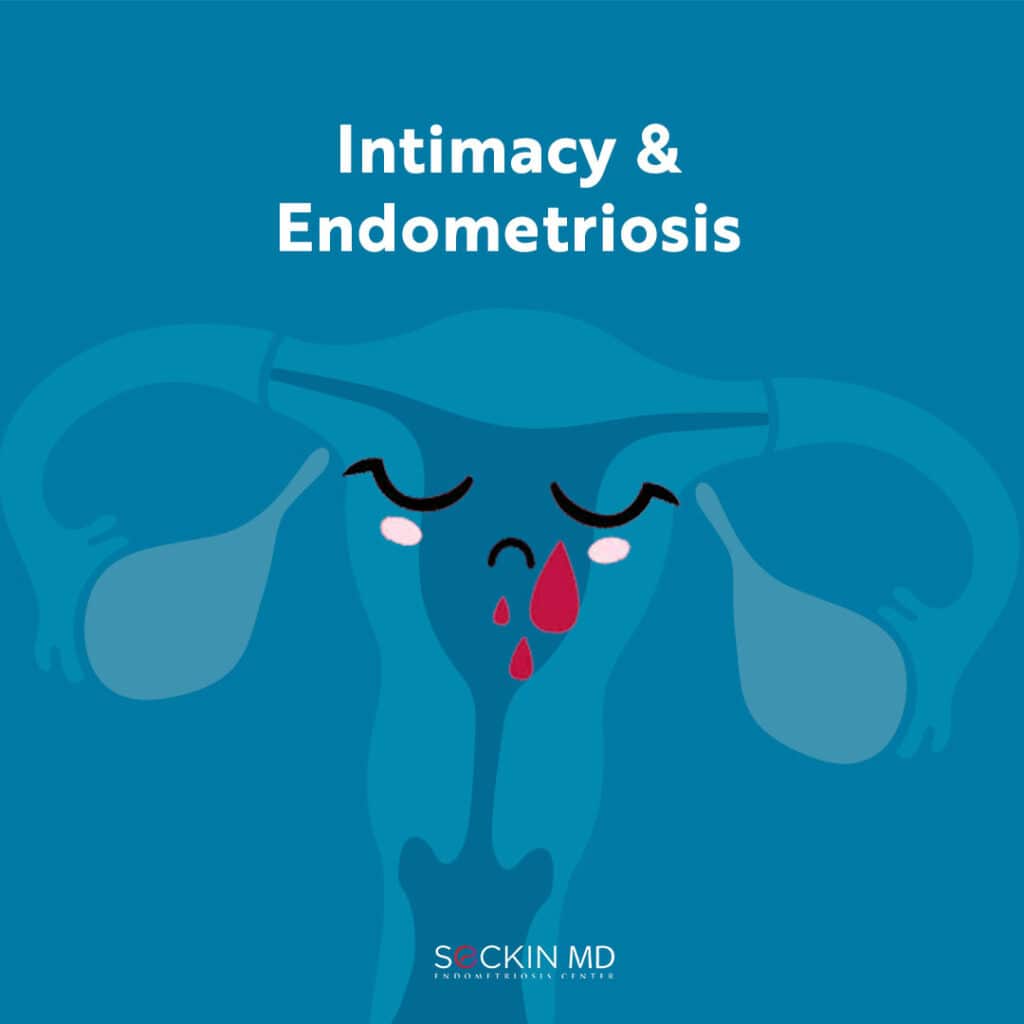Sex and Endometriosis

One of the main symptoms of endometriosis is painful sex or dyspareunia. In endometriosis, endometrial-like tissue often grows in or around the area between the rectum and the vagina or the ligaments leading to that area. Penetration and typically deep penetration can result in severe pain and discomfort.
Impact of endometriosis on a woman’s sex life
Painful sex can have a substantial negative impact on personal relationships and lead to significant emotional stress. Endometriosis often affects women of reproductive age, which further puts a strain on relationships and families.
Women with deep infiltrating endometriosis (DIE) often have reduced sexual function. Patients may find a lack of desire to engage in sexual activity and/or a drop in sexual satisfaction and pleasure. This reduced libido is often linked to a combination of physical pain and anticipated pain.
For patients who have had an oophorectomy (loss of ovaries), vaginal lubrication may be reduced due to low estrogen levels causing further discomfort during sex.
Tips to reduce pain during sex and improve intimacy
The best initial step is to ensure that all endometriosis lesions are fully excised. Laparoscopic deep excision surgery is critical in obtaining the best chance for lasting symptom relief. Meanwhile, the following are some ways to reduce pain and make intercourse more pleasurable.
Communicate with your partner
Ensuring open and transparent communication is the key to getting support and understanding from your partner. Talk to your partner about the pain that you are experiencing and the impact that this has on your physical and emotional wellbeing. This is probably a good time to give them a refresher on endometriosis and even have your partner accompany you for medical consultations for better insights into your symptoms and ongoing treatment. Read our article on talking about endometriosis with your partner.
Some individuals may choose not to communicate their pain or discomfort to their partners during intercourse. However, remember that dyspareunia should not be simply “tolerated”. It is important to keep communicating openly with your partner at all times. They may misunderstand reluctance to initiate or engage in sexual activity as a reflection of them rather than as a result of your disease.
Choose a comfortable sexual position
Some positions can cause more pain than others due to the manner in which the uterus is tilted. Experimenting with different positions and choosing the ones that are mutually pleasurable can help.
Time your sexual activity and track your cycles
Pain due to endometriosis often worsens with the onset of menstruation or ovulation. It can help to keep track of your menstrual cycle and avoid having sex when the pain is at its worst. You can track your periods manually or through a mobile application. Involving your partner in this exercise is also a good way of bolstering communication.
Talk to your doctor
It may not be always comfortable discussing intimate subjects such as sex with your doctor. But these discussions play an important role in letting them understand your symptoms. They may refer you to a sex therapist or pelvic floor therapist depending on your symptoms. Physical therapy helps by addressing coexisting conditions that lead to painful sex, such as pelvic floor dysfunction.
Spend more time in foreplay
Proper lubrication is necessary to minimize pain during intercourse. Foreplay can help the body properly prepare for, relax and help in producing natural lubrication. This will also help in fostering intimacy.
Use a lubricant
If vaginal dryness persists, you might want to use a water- or silicone-based lubricant to reduce discomfort.
Explore other forms of intimacy
Sexual pleasure is not only about intercourse. Have an open conversation with your partner about what excites and arouses both of you. It is possible to be intimate and still achieve sexual pleasure without penetration.
Be prepared for post-coital bleeding
Post-coital bleeding or bleeding after sex can happen in some endometriosis patients. Anticipating it can make the experience less obnoxious for both partners. Keep wipes and towels handy and opt for positions that are less likely to result in bleeding. Let your partner know beforehand if you expect post-coital bleeding.
Do you experience pain during intercourse? Are you finding it difficult to deal with it? Please do not hesitate to share your experience to help others by leaving a comment on our post on Facebook or Instagram
Get a Second Opinion
Our endometriosis specialists are dedicated to providing patients with expert care. Whether you have been diagnosed or are looking to find a doctor, they are ready to help.Our office is located on 872 Fifth Avenue New York, NY 10065.
You may call us at (646) 960-3080 or have your case reviewed by clicking here.